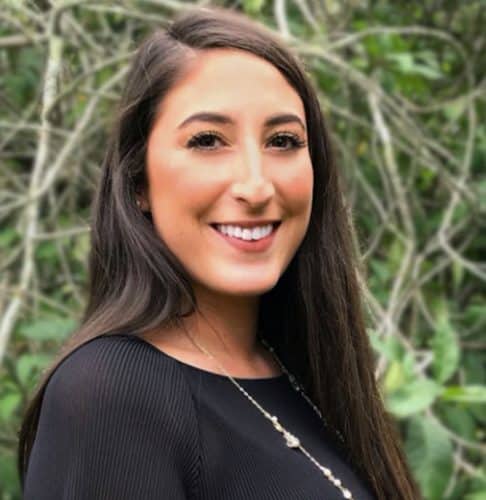
Americans are depressed, anxious, and lonely – and we know it. These trends are even worse among younger Americans. In 2022, nearly half of young people ages 13-25 told Springtide Research Institute, where I am Senior Research Associate, they are moderately/extremely depressed (47%), moderately/extremely stressed (55%), or moderately/extremely lonely (45%).

Nabil Tueme, PhD
While young Black, Indigenous, People of Color (BIPOC) also struggle with their mental health, they face the additional challenges of subtle and overt forms of racism, which social science research shows are linked to depression, anxiety, and suicidal thoughts.
Yet, in Springtide’s latest research report, Navigating Injustice: A Closer Look at Race, Faith & Mental Health, data reveal that young BIPOC are flourishing mentally and emotionally at rates comparable to their White peers. Young BIPOC report high levels of life satisfaction, agency, and self-esteem.
In interviews, young BIPOC told us that despite the challenges they face, they find safety, hope, and purpose in their faith. This may come as a surprise given the prevailing narrative that young Americans are fleeing the pews. In our survey, however, over half (58%) of young BIPOC agreed that their faith matters for their mental health. And for many young BIPOC, faith isn’t a siloed part of their identity; it is closely coupled with their racial/ethnic identity.
Practically speaking, this coupling implies that when faith leaders embrace and honor the racial/ethnic identity of young BIPOC in their community, they’re promoting the spiritual flourishing, mental health, and sense of belonging of young BIPOC, too. On the other hand, when faith leaders ignore racial/ethnic identity, or claim they simply “don’t see color,” this is a surefire way to make young BIPOC in the community feel misunderstood and unwelcome.
Don’t leave race at the door
For young BIPOC, race and religion are intertwined, but racial identity is often more front-and-center than religious identity. Many young people claim belief in a higher power and describe themselves as either religious or spiritual, and for young BIPOC, their belief systems and practices are a part of who they are. That means that they can’t take off their race at the door of their places of worship. And frankly, they don’t want to.
As May, 20, told us: “I am the person who can’t leave [race] outside of a space. Being Black shapes the way I think about things in a lot of ways and what I tend to think about. Religious or spiritual places are no exception.”
The United States has a long and complex history of racism, including slavery, wage theft, Jim Crow laws, and other policies preventing people of color from living full and meaningful lives. Despite progress made in this area, the legacy of racist policies and prejudices continues to affect BIPOC communities today. Social scientists can often predict many of a person’s most important life outcomes, such as emotional and physical health, education, housing, and income, among others, simply by knowing their race.

But faith leaders need to know that while race-based oppression is an important part of the story, it’s not the full story. Young BIPOC also shared how their ethnic/racial identity is a great source of joy and meaning in their lives. Darian, 25, for example, told us that his ethnic/racial identity gives him purpose. He shared: “When I think about what the Lord wants me to do on this earth, I think about, well, I was born half European and half Asian. Because of that, I’m able to relate to people in a deeper way and be a bridge between people. And, so, I think for me, my mixed ethnicity has been a kind of guiding light for how to serve others.”
Loving who they are
If faith leaders miss this piece, they are more likely to circumvent discussions of race out of fear that doing so would be divisive. They might prefer, as it is sometimes called, a “colorblind” philosophy of race that emphasizes the whole rather than its individual parts.
While this could make sense on the surface, our research found that it is difficult for people of color to be members of organizations or communities that do not celebrate, let alone acknowledge, their ethnic/racial identity. Again from May, Black and age 20: “When churches or religious institutions fail to acknowledge that there are parts of people’s identity that need to be addressed, you need to see them and hear their pain…It’s not just on the news. It’s real, it’s in people’s real lives, it’s affecting them. To ignore race is almost to ask people to not bring that part of themselves into this space.
On the other hand, people of color feel seen, understood, and empowered in communities who acknowledge all of the meaningful identities that make them who they are. Isabella, age 23 and Hispanic/Latino, told us, “My faith community brought me a lot of confidence and less anxiety [regarding] who I am and where I come from. So, they influenced me in a positive way by honoring my culture, my identity. Understanding my identity just takes all the pressure off, you know? I was more proud to be Latino. I didn’t feel inferior. So, yeah, I just love who I am, and I love where I come from. My faith community has given me the confidence that I belong in this community and with Christ.”
The opportunity
At stake is a generation of young people of color who appreciate the power of faith to navigate severe loneliness and mental health challenges. On the one hand, they see that “What’s good for one’s spiritual health is good for one’s mental health,” as Darian, White and Asian American, told us. On the other hand, they’re encountering churches that prevent them from embracing their race/ethnicity and therefore, not really seeing who they are.
The opportunity in front of faith leaders is not to merely survive difficult race conversations, but to remind young people of color that they are made in God’s likeness. Ignoring the racial/ethnic identity of people of color incorrectly suggests that race is not part of that image. In its place, there is an opportunity to empower young people of color to celebrate their partnership in the Gospel and love God with their whole being by helping them claim their racial/ethnic identity with dignity and pride.
Nabil Tueme, PhD, is a Latina sociologist and educator. She is currently Senior Research Associate at Springtide Research Institute where she directs research studies on the religious and spiritual lives of emerging young adults.






